In addition to Weibo, there is also WeChat
Please pay attention

WeChat public account
AutoBeta


2024-11-17 Update From: AutoBeta autobeta NAV: AutoBeta > News >
Share
AutoBeta(AutoBeta.net)12/24 Report--
In another week, the 13-year-old new energy subsidy policy will officially withdraw from history. In 2022, under the increasingly stringent carbon emission regulations and the global carbon neutralization target, we can clearly feel that more and more car companies are beginning to speed up the electrification transformation and announce the timetable for suspending the sale of fuel vehicles. For a moment, fuel cars seem to be a thing of the past.
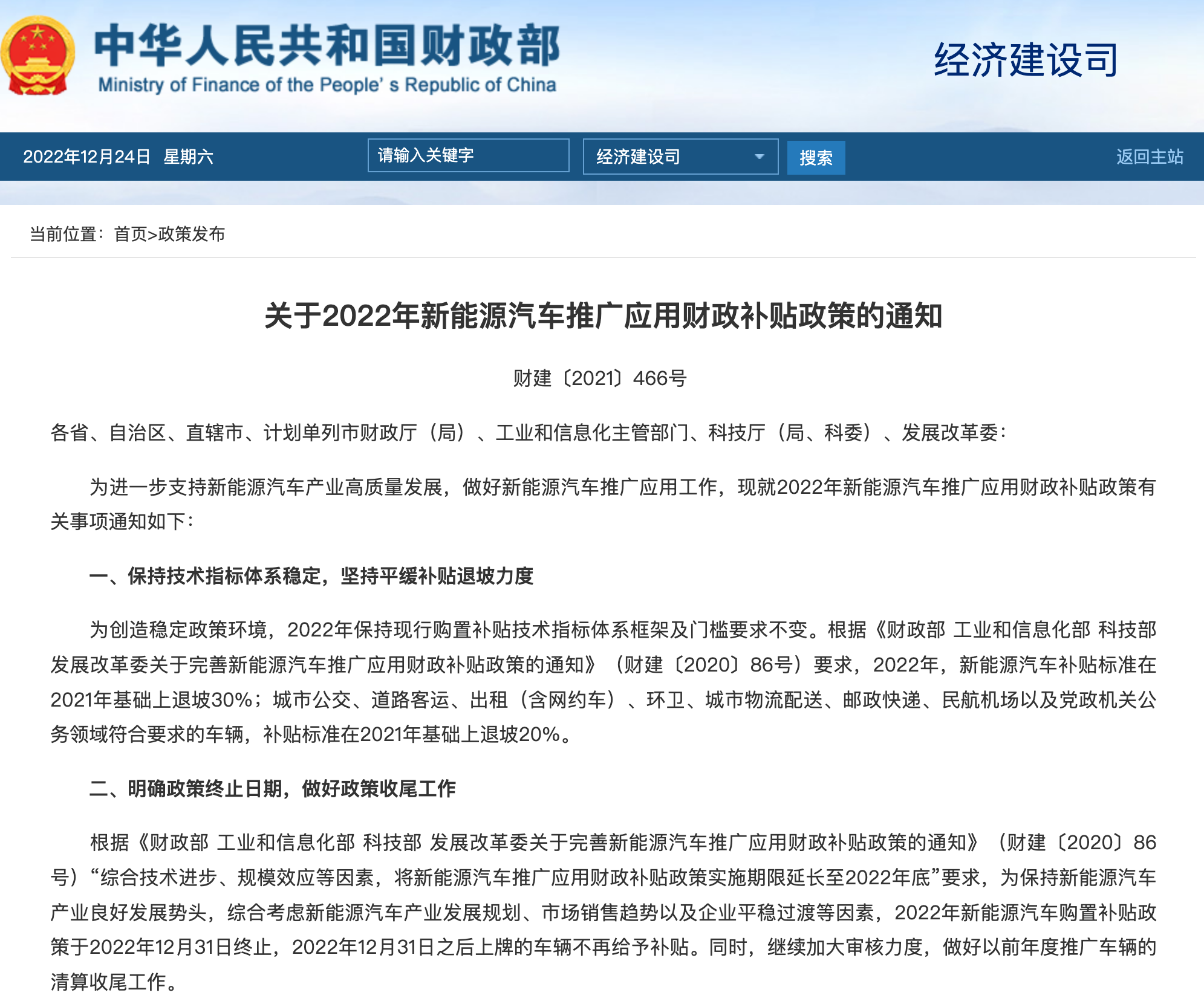
April 3, 2022, this is a time to be remembered in China's automobile history. On this day, BYD announced that it would officially stop production of fuel-fueled vehicles and will focus on pure electric and plug-in hybrid vehicles in the future. This means that BYD has become the first traditional carmaker in the world to stop selling fuel cars.
In the view of many people, BYD has the core technology of new energy, such as battery, motor, electric control and so on. Isn't it natural to put fuel cars into production? In fact, this is only a superficial phenomenon. Any car company can develop new energy core technologies such as electric controls, motors and batteries, but as a traditional automaker, fuel vehicles are the main source of sales. this is also why Mercedes-Benz, BMW, Audi and other manufacturers are difficult to give up fuel vehicles. For many car companies, cutting off fuel cars is no different from self-abandoning martial arts.
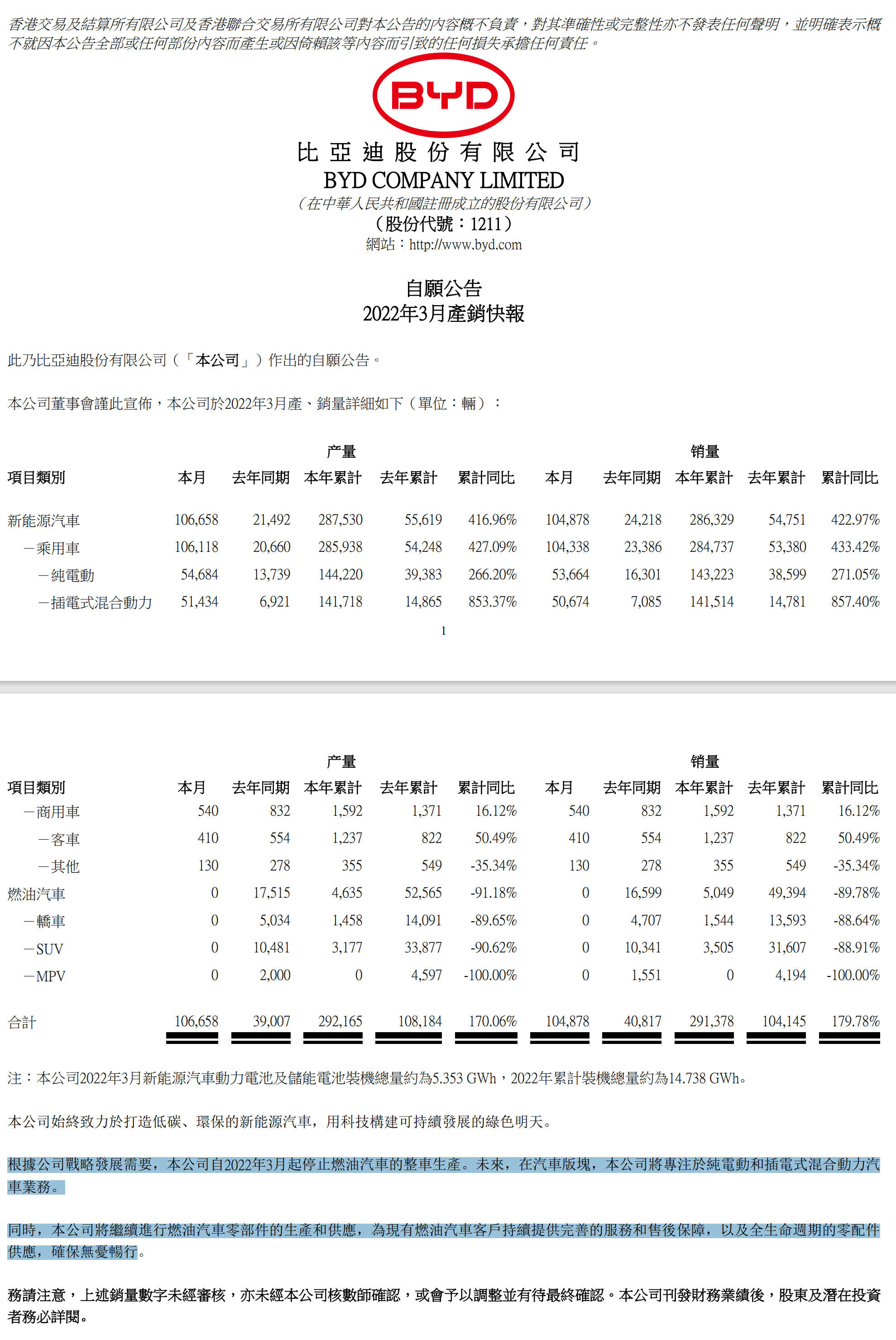
As a result, when BYD announced the suspension of fuel cars, the market was in an uproar, but more skeptical. However, unlike traditional carmakers such as Mercedes-Benz, BMW and Audi, BYD's share of sales of fuel vehicles was declining before it was announced that it would stop producing fuel vehicles. Data show that BYD sold 740100 vehicles in 2021, including 603900 fuel vehicles and 136300 new energy vehicles. After entering 2022, before announcing the suspension of fuel vehicles, BYD sold 291400 vehicles in the first quarter, including 286300 new energy vehicles and 5049 fuel vehicles. From this, it can also be seen that BYD's discontinuation of fuel vehicles is in line with its own development, and it is also the inevitable trend of the transformation of BYD's automobile business.
After stopping the production of fuel-fueled vehicles, BYD's new energy orders continued to flow, surpassing Tesla to become the top seller of new energy vehicles in the world. According to Shanghai Insurance, BYD sold 1.3667 million new energy vehicles from January to November this year, a year-on-year increase of 217.28%. This also led BYD Chairman Wang Chuanfu to say that he plans to sell 4 million new energy vehicles in 2023.
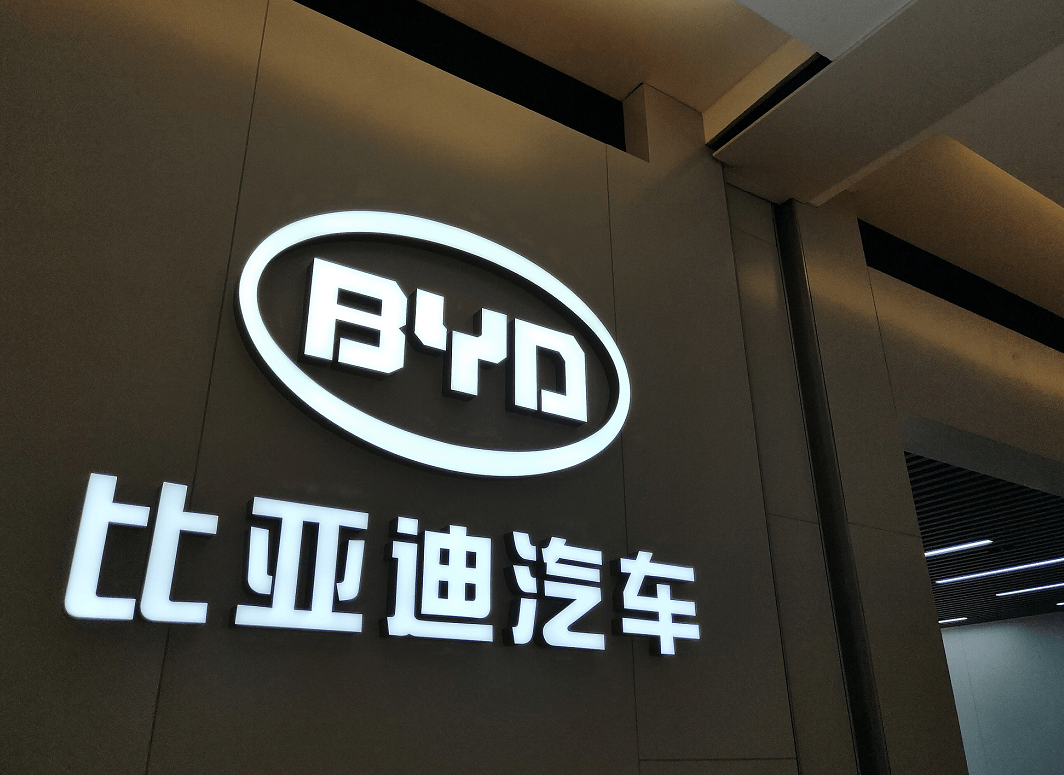
Although we don't know whether BYD can achieve this goal, it turns out that new energy vehicles have become a new racetrack for cars. On June 5, Changzheng Automobile, a commercial vehicle brand owned by Great Wall, announced that it would completely stop producing fuel vehicles, shifting from traditional energy to clean energy transport technologies such as hydrogen fuel cells and pure electric power. On August 22nd, the Harvard brand of Great Wall announced a full transition to new energy vehicles, suspending the sale of fuel vehicles from 2030. It is important to note that although there are still eight years to go before Harvard officially stops production and sale of fuel vehicles, the decision is obviously difficult because it is still fuel vehicles that are responsible for the sales of the Harvard brand. The insurance figures show that Harvard New Energy vehicles sold only 1426 vehicles from January to November, while the total sales were 423400, which is not worth mentioning to the Harvard brand.
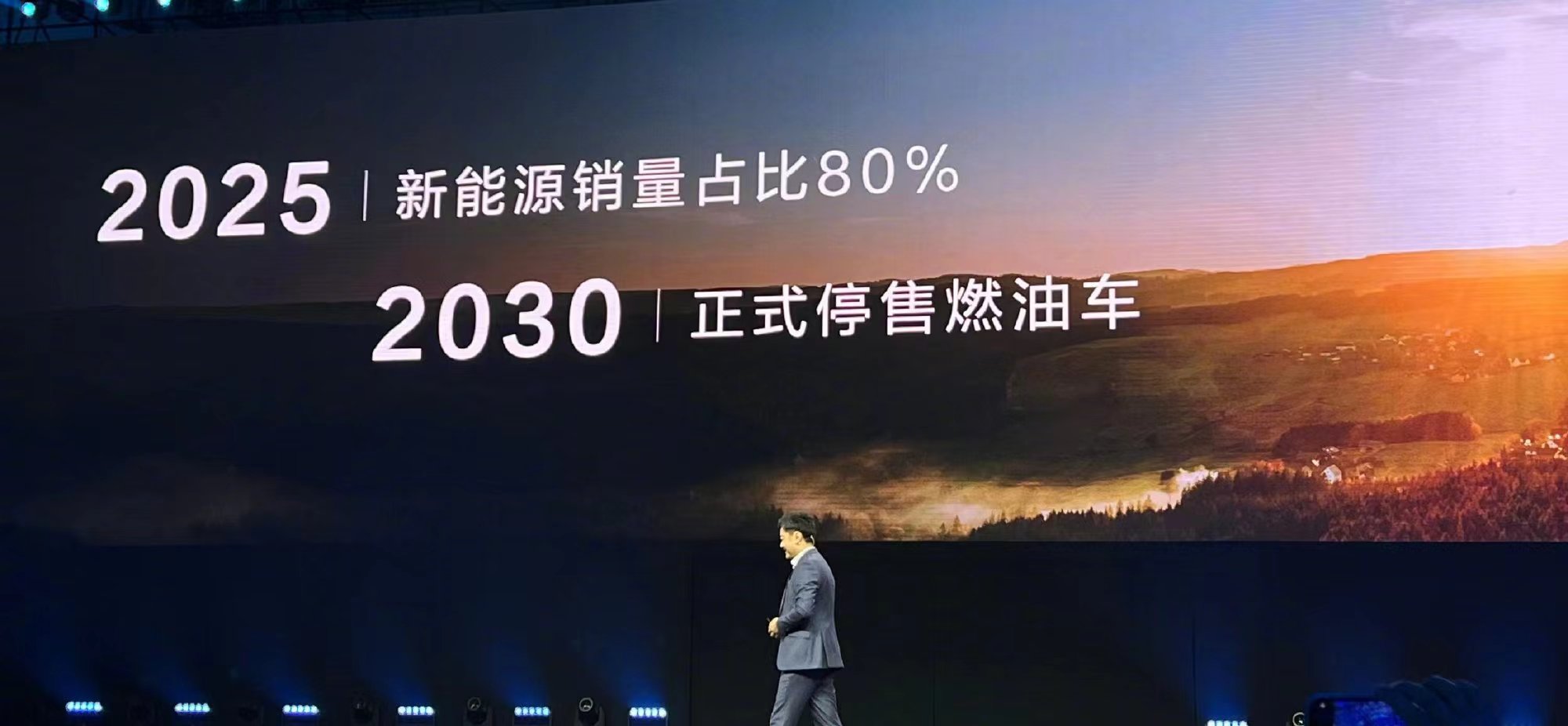
On November 24, at the press conference of Dongfeng Fashion New Energy Strategy, Dongfeng Fashion officially released the "photosynthetic Future" plan. According to reports, the "photosynthetic Future" plan inherits the Dongfeng Group's "Dongfeng Qi" plan, which aims to meet the needs of users, provide efficient, safe and reliable green travel solutions, and achieve a new path for sustainable energy development. In order to realize this plan, Dongfeng Fashion will achieve 100% electrification within three years, stop production of fuel vehicles within five years, and become a mainstream brand of new energy favored by Chinese young people in 2025.
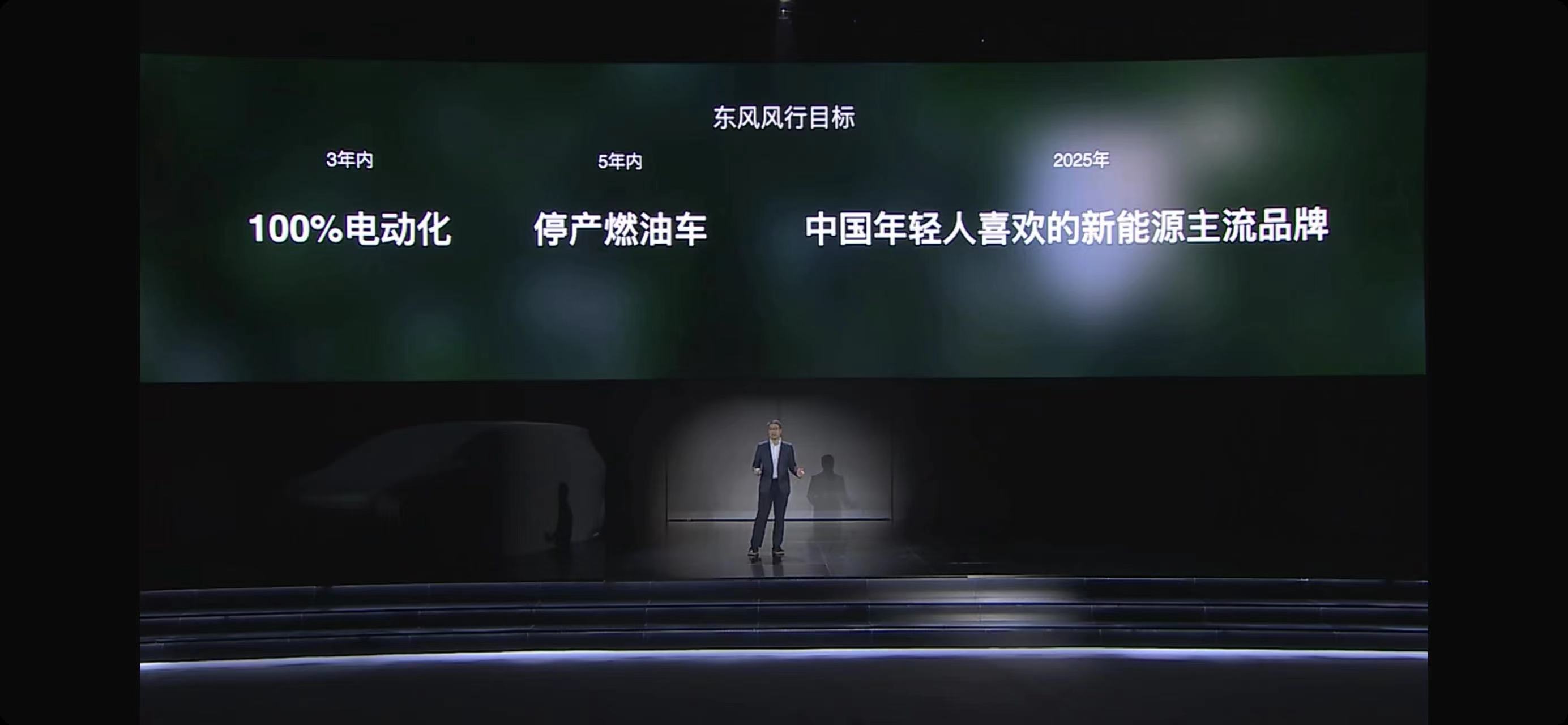
In fact, before BYD announced the suspension of fuel cars, many car companies had already announced the timetable for ending fuel vehicles. For example, Changan Automobile, which announced the Shangri-La Plan as early as 2017, will invest more than 100 billion yuan in new energy in the next eight years, and will completely stop the sale of traditional fuel vehicles by 2025. In addition, Volvo and Fiat Chrysler announced that they would no longer launch fuel vehicles as early as 2019; Lincoln stopped completely selling fuel vehicles in 2022; BAIC and Nissan plan to stop production and sale of their own brand traditional fuel passenger cars in China by 2025; BMW plans to stop selling fuel vehicles in the European Union by 2030; Mercedes-Benz plans to achieve full electrification by 2030; Volkswagen and Kia plan to stop production of fuel vehicles by 2035 Toyota plans to take the lead in halting the sale of fuel vehicles in China, Europe and North America in 2030; in addition, GM, Ford, Aston Martin and Maserati have also made it clear that they will stop selling fuel vehicles in the future.
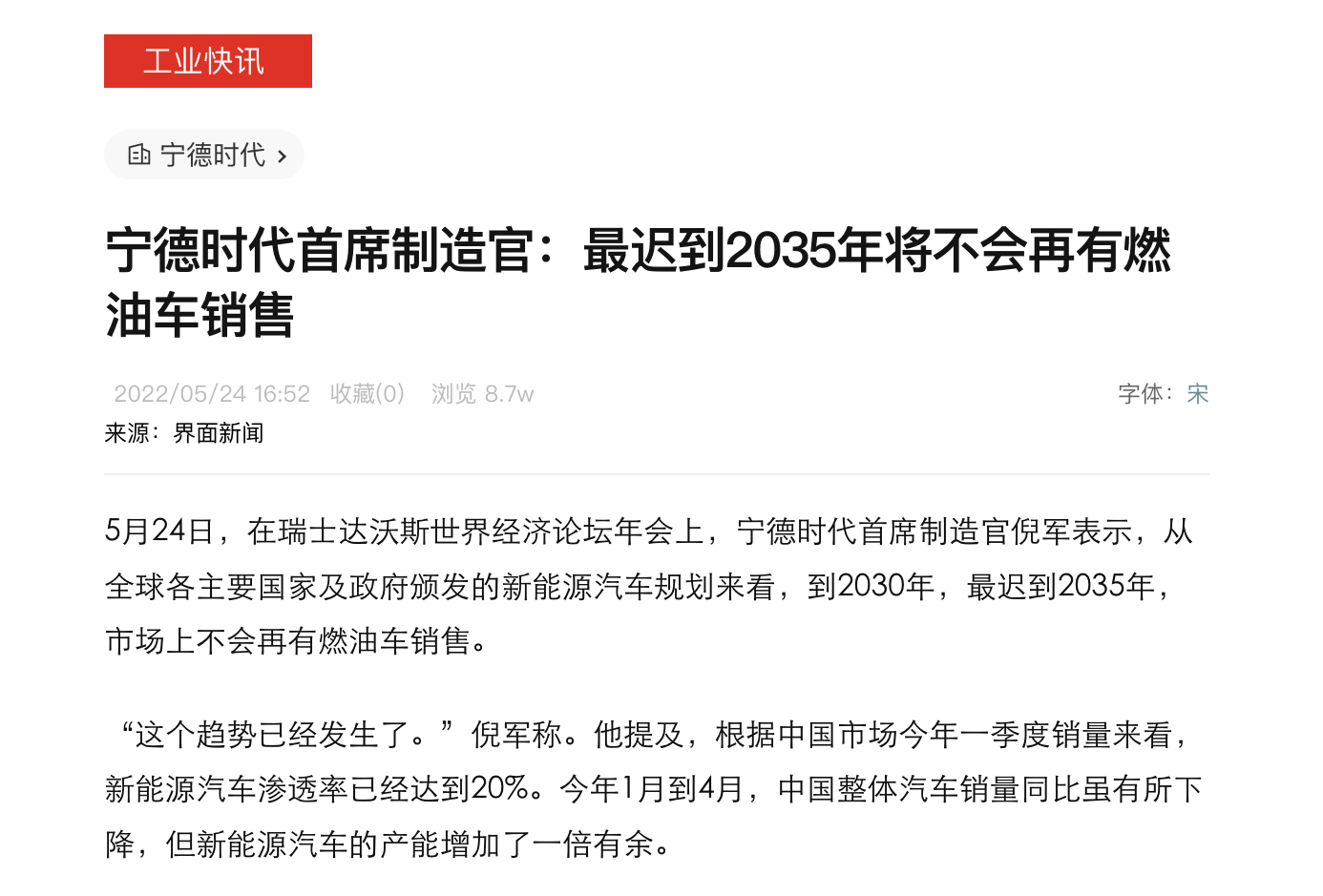
Although the time for major car companies to stop selling fuel vehicles is different, a consensus has basically been reached. This means that in three or five years' time, the range of fuel car brands and models that consumers can choose will be further narrowed, and the entire auto industry and auto market will accelerate to embrace the era of electrification. Of course, this is also a general trend and a helpless move. Driven by the goal of mitigating global warming and the policy of banning the sale of fuel vehicles in major countries, different car companies and brands have no choice but to kill fuel vehicles, and the life of fuel vehicles has entered the countdown stage. However, despite the blowout growth of new energy vehicles, there are still a large number of users who do not accept new energy vehicles, and there are even heroic words that "fuel cars continue not to buy trams", but when the whole world is moving in the same direction, will you drift with the tide and stick to yourself?
Welcome to subscribe to the WeChat public account "Automotive Industry Focus" to get the first-hand insider information on the automotive industry and talk about things in the automotive circle. Welcome to break the news! WeChat ID autoWechat
Views: 0
*The comments in the above article only represent the author's personal views and do not represent the views and positions of this website. If you have more insights, please feel free to contribute and share.






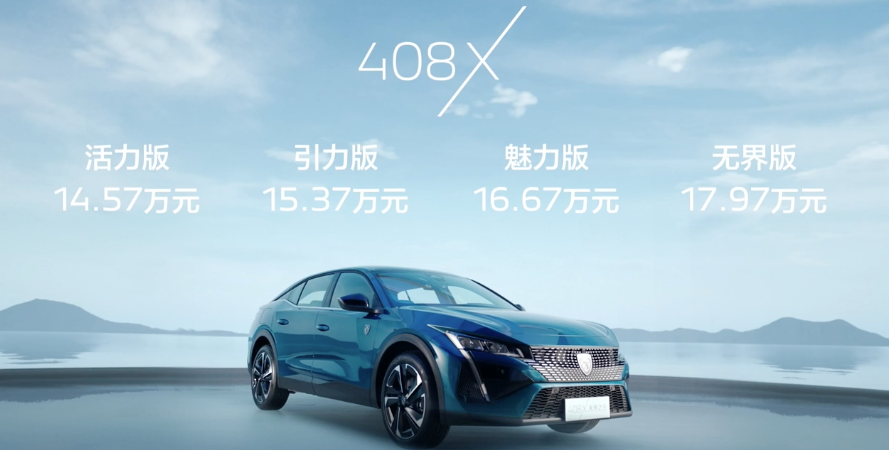




© 2024 AutoBeta.Net Tiger Media Company. All rights reserved.